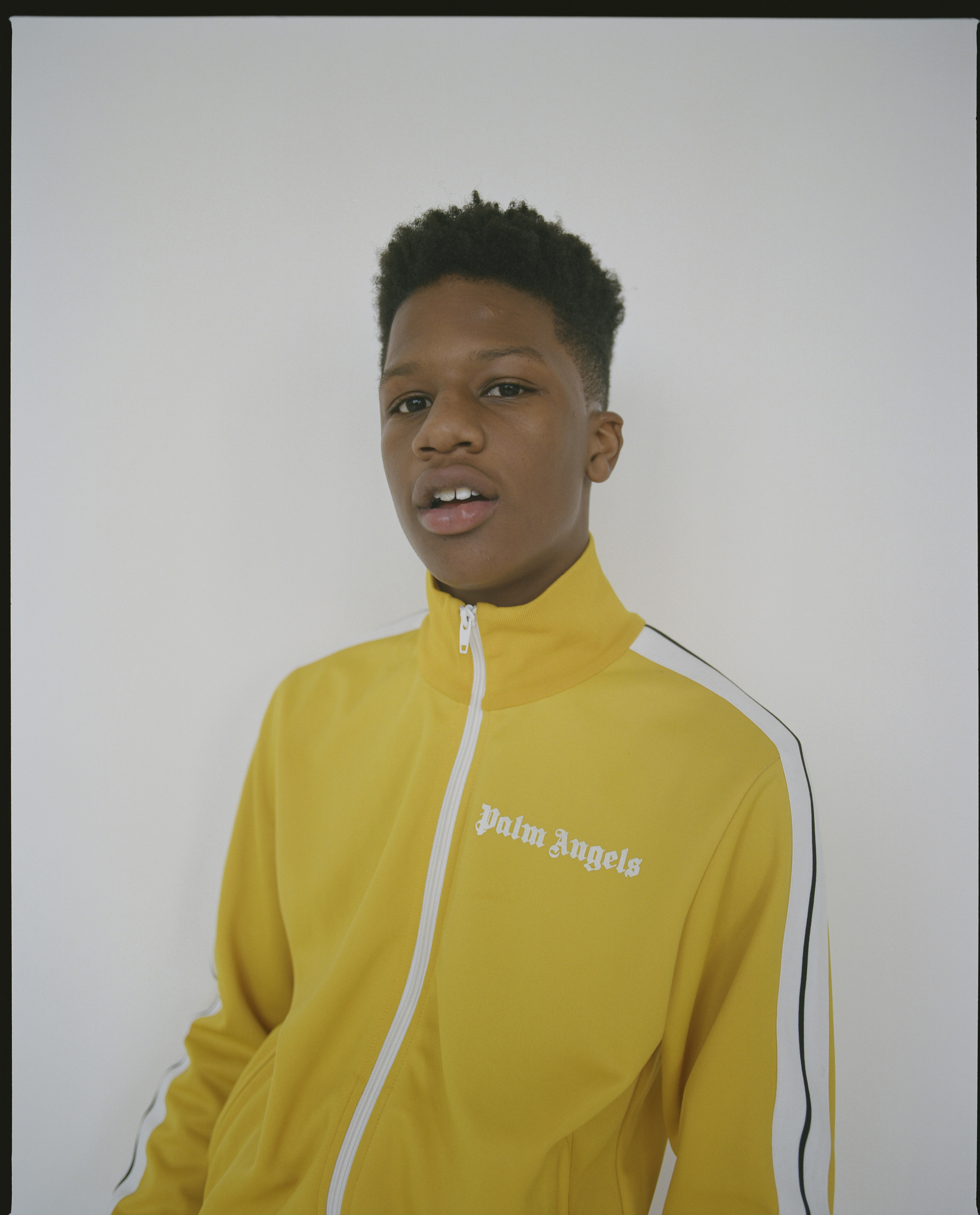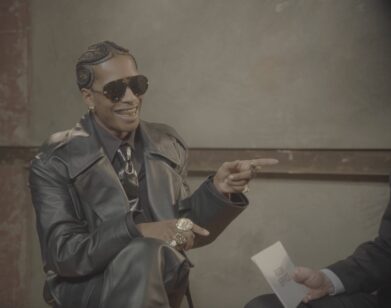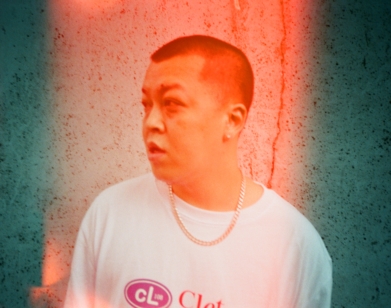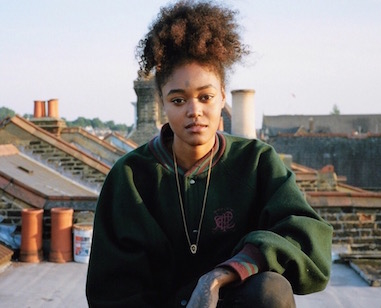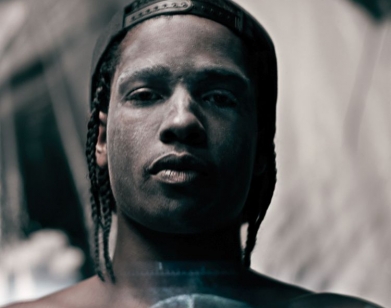15-year-old Smooky Margielaa is a teen rap phenomenon who’s actually cool
In an era flooded with rappers who only seem to be getting younger, the 15-year-old Bronx star Smooky Margielaa stands out. He’s emerged in a cluttered New York rap environment, where artists and collectives from every borough are striving to become the next Bobby Shmurda or Cardi B. His local contemporaries include the artists in Brooklyn’s drill scene, the lo-fi Slums crew that stretches from Crown Heights to the Bronx, Staten Island’s Squidnice, and Queens’ Flee. Amid the competition, Margielaa’s got a rare ability to render emotionally resonant AutoTuned melodies in sharp detail, recalling the late Speaker Knockerz.
Margielaa credits his style to the West African music he encountered during his youth. His dad is the famous Malian musician Abdoulaye Diabaté; Margielaa grew up playing the balafon, a West African instrument similar to a xylophone. “When I play the balafon, it has melodies in it,” he explained to Pigeons and Planes. “Sometimes, you can hear that melody in my voice.” This experience lends a depth to his music lacked by many of his peers in the realm of teen-centric internet rap.
In 2016 Margielaa caught the eye of A$AP Rocky, who took him on as a protege. Margielaa’s relentless energy on tracks like “Bahamas,” off the A$AP Mob project Cozy Tapes Vol 2: Too Cozy, have solidified his place as one of the most exciting acts in the nebula of young New York City talent. At the rate he’s moving, he’ll soon be capturing attention far beyond the five boroughs.
ALPHONSE PIERRE: You have a fascinating background, your dad was a musician from Mali and you used to tour with him. What can you tell us about that?
SMOOKY MARGIELAA: I wasn’t really touring with him, but I was doing a lot of shows with him. My dad was on tour in France and Europe and places like that. I just had a lot of shows with him across the country and all that. I used to have a djembe and this wooden xylophone called a balafon, which I used to play for my dad. I was like 8 years old at that time, so the crowd would be happy and it used to make my dad’s performances better, you feel me? You know he got a little kid playing balafon.
PIERRE: What other music did your dad expose you to?
MARGIELAA: I mean my dad is the one who showed me Michael Jackson. It was a whole story to that too, because in the African tribe I used to dance like Michael Jackson. I used to do his dance moves, moonwalk on the stage, and they used to pay for me it. And then I used to sing, so ever since then I’ve been singing.
PIERRE: Do you think you can still feel the West African music you used to play with your dad in your current music?
MARGIELAA: Yeah I can definitely hear tunes in it. Some of the keys I can even touch are in it.
PIERRE: How do you feel about American artists taking from West African, such as the Afrobeats trend?
MARGIELAA: I feel like that’s a smart idea. French Montana did it, and you see where he’s at.
PIERRE: Do you still listen to any artists from Mali?
MARGIELAA: I used to. My cousin is real popular in Africa — Sidiki Diabaté — he’s real famous in Africa so that’s the only person I really listen to, him and his crew.
PIERRE: How did you transition from playing West African music with your dad into rap music?
MARGIELAA: I had a lot of friends that wasn’t African. I lived in New York, I lived in the hood where it was gritty. If you see me, you wouldn’t really know me as an African kid that speaks my language. I was just a kid in the hood who was bad, and all that stuff. I didn’t really rap in my language, cause that wasn’t cool. I would probably have to be in Africa to really do African music, and get the attention that I want to get.
PIERRE: When did you start to take rap seriously?
MARGIELAA: People just started realizing that I could. I met my tutor, he was a tutor in my school, right. He’s now my manager, and he wanted to put me in the studio because he used to see the songs I would put out on my phone. So then he just said, “I got a studio,” and we went and I recorded two songs and we put it out. One of them got real popular in my school, and I just kept going. I was getting love in my school a lot, and there was a lot of kids in my school. So once they shared it, another person shared it, and it was the popular kids in the school. Once one popular kid shares it then all the popular kids gonna be on that shit. You go viral.
PIERRE: Being from the Bronx, do you feel that you have certain expectations that you have to live up to?
MARGIELAA: Oh man, I can’t embarrass my peoples. I gotta keep going through everything.
PIERRE: When did you first connect with Rocky?
MARGIELAA: It was in the Bronx. It was a lot going on that night. We was in front of a club that I was supposed to perform at, you feel me? And all the kids were supposed to leave by 12 cause they were gonna start serving drinks, so at 12 they kicked everybody out. It was just my energy he noticed. I ran up to him like five times. I seen Rocky before everybody else seen him. He came in the big SUV. I was already kicked out the club; I’m outside now and now Rocky is pulling up in the big SUV. He come in the SUV I run up to him like, “Yo, this Smooky Margielaa.” I had some gray Margiela’s on and he was feeling them. He was like “Damn young nigga, you got Margielas on, you swaggy!” I was the only nigga in the Bronx that had Margielas on that night, looking flee’d up. His assistant hit me up two months later, and then Rocky probably another month after that, we spoke face to face. We got cool, you feel me? I didn’t sign until a year later. It was a whole process. I was finding a vibe with him, we was cooling. I met everybody from the A$AP Mob and we did a track.
We made a song called “Black Card.” He was like, “Oh shit, this kid right here.” And it got to a point where I started messing with them, getting comfortable, and that was it.
PIERRE: One of your standouts on Cozy Tapes was “Bahamas.” Where did that energy come from?
MARGIELAA: You know me, I talk about real stuff. I don’t just do a song and not talk about nothing, like a lot of people out here. When I got in there I just started thinking about stuff—“I never been to Bahamas but I sure have been to the projects.” I really have been to the projects and I’ve never been to Bahamas. “I used to catch licks in pajamas”—I used to leave my house in pajama pants, with no money, do something bad, and get it.
PIERRE: Are your parents supportive?
MARGIELAA: Of course. My parents come to the shows and stuff.
PIERRE: “Stay 100” was another song where you really expand your use of flows. Was it just a vibe you caught?
MARGIELAA: I do a reference track with no words, where I just mumble, mumble, mumble to see what flows sound good. And then I add words on top of it.
PIERRE: One of your recent tracks produced by Murda is called “Not Right (Free Meek Mill).” Is Meek an artist who means a lot to you?
MARGIELAA: I just feel like Meek is a real nigga and he got locked up for the dirt bike stuff. And he might’ve had other cases, but they shouldn’t have him locked him up for the dirt bikes, that’s not right.
PIERRE: Do you think it’s tough getting respect in rap at your age?
MARGIELAA: Nah, I don’t feel like that at all. I feel like it’s even better that you’re 15 years old and actually doing it.
SMOOKY MARGIELAA WILL RELEASE HIS DEBUT RECORD LATER THIS YEAR.

